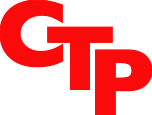About CTP Community Transition Program
What are transition services?
According to the Individuals with Disabilities Education Act of 2004, a student’s transition needs must be taken into account starting no later than the first IEP when the student is 16 years old and updated yearly after that. The student’s educational plan includes transition services, which are created to fit their individual needs and prepare them for independent life, work, and further education.
Who is eligible for post-high school transition services?
- Students between the ages 18 -21 who have an IEP
- Students who have finished 4 years of high school without a diploma or
- Have graduated with one of the following diploma types:
- Modified Diploma
- Extended Diploma
- Alternative Certificate
- GED
What post-high school transition services are provided in 4J?
Transition services are post-high school programs that prepare students with a variety of disabilities, ages 18 -21, to enter an adult world where they can participate in their community as independently as possible. Students receive services during the school day at a transition program in our district, The CTP – Commnuinty Transtion Program. The program is staffed with certified teachers and educational assistants who work as support personnel, instructors, and advocates. Students in the CTP program have access to the community to practice job skills and activities of daily living.
What is taught in the transition programs?
- How to communicate effectively, appropriately, and responsibly
- How to demonstrate self-advocacy
- To make safe and healthy choices in all environments
- How to achieve and maintain employment
- To establish and maintain appropriate leisure activities
- How to access community resources for leisure, work, continuing education, advocacy, and problem-solving support
- How to build and maintain healthy, meaningful relationships
Each IEP team of the young adult creates goals that will develop independence and transition to adulthood. At age 21 each student will exit with defined levels of independence and community living skills. Access to community services such as housing, continuing education, advocacy, Supplemental Security Insurance (SSI), and medical coverage covered.
Each program offers an opportunity to practice meaningful work readiness. At job sites, the student identifies their work preferences, increases their awareness of the skills to be a successful employee, and develops a work profile that identifies vocational support needs.
Our transition programs collaborate with community agencies such as Vocational Rehabilitation, Developmental Disability Services, and their partner agencies. 4J has long-standing relationships with these community partners.
Have more questions?
Please contact the Student Services Department:
Phone: 541-790-7800
What do I need to do to enroll?
Link to Enrollment
Enrollment papers can be dropped off at the Eugene 4J District Office:
Student Services Department
200 North Monroe
Eugene, OR 97402
Phone: 541-790-7800
